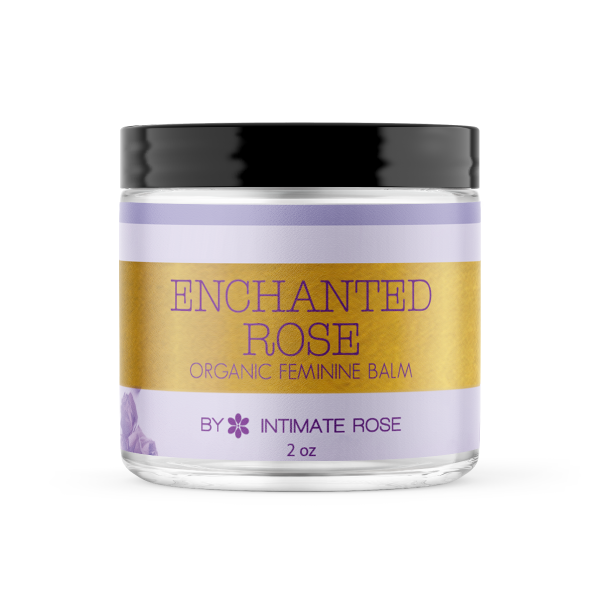Almost every woman will experience at least some weight gain during menopause because of hormonal changes. And that will be on top of the weight gain due to aging. It’s important to address gaining weight, beginning with those pesky hormonal changes.
This is because excess weight increases the risk of heart disease, type 2 diabetes, high blood pressure and osteoarthritis. Also, it raises the risk of some types of cancer, including breast and colon.
Why Changes in Your Hormone Levels Can Cause Weight Gain
The perimenopause stage is the months or years leading up to menopause. And it is during this transition to menopause that the production of the hormones, estrogen and progesterone, by the ovaries declines over time. Progesterone is the first of these two hormones to decline because sometimes women don’t ovulate during a menstrual cycle, and this is called an anovulatory cycle.
When there is no ovulation, the body doesn’t produce any progesterone. This results in the presence of estrogen that is unopposed by progesterone for an entire month, also known as estrogen dominance. And when women reach the age of menopause, the number of anovulatory cycles increase. In each of these months, a woman may experience the side effects of the resulting estrogen dominance.
And that includes the infamous water retention and mood swings that occur before menopause. Interestingly, these symptoms are due to having too much estrogen, rather than a lack of it. Before perimenopause, any negative effects of estrogen are held in check by the opposing effects of progesterone. But the most common time for the initial stages of breast and uterine cancers to begin is during perimenopause.
Hormonal and Non Hormonal Menopause Relief

However, perimenopause happens well before your estrogen levels fall, but it coincides with a drop in progesterone. At menopause, your body reduces its production of estrogen while it completely stops the production of progesterone. But, the adrenal glands and fat tissue continue to produce estrogen. And one of the functions of estrogen is to store energy from food as fat.
If you are experiencing weight gain or other uncomfortable symptoms of menopause, ask your doctor if you are a candidate for bioidentical hormones to replace your declining estrogen and progesterone levels. Bioidentical hormones come from plant sources and are chemically identical to those your body produces.
They mix these hormones in a compounding pharmacy. But the U. S. Food and Drug Administration (FDA) doesn’t regulate these preparations, so the quality and risks may vary. But, Estradiol, one of about 20 different forms of estrogen, and micronized progesterone, where the particles are tiny, are bioidentical hormones the FDA has approved. So, you can find them in a regular pharmacy. However, Estriol, the form of estrogen some women may prefer, is available only in compounding pharmacies.
As you age, it is more important than ever to consume healthy fats, fruits and vegetables. Also, cut down on sugar and simple carbohydrates, add fiber to your diet and get plenty of sleep. You might want to think of menopause as your motivation for making these positive changes in your life. As you go through one “change,” use that as a positive motivator to make some other “changes.”
Also, be sure to keep your allergies and any other health problems in mind and check with your doctor before you make changes in your diet.
Switch to Healthy Fats
If you don’t have a gallbladder problem, you may want to replace the butter and margarine in your diet with olive oil. The reason this can make a big difference in your health is because every cell in your body consists of fats, proteins and carbohydrates. And the type of fat in those cells comes primarily from your diet.
So, when you change the type of fat in your diet, you change the type of fat in every cell in your body. You literally become a different person. However, it takes a little over three months or 104 days, to be exact, for the process to take place where your cells mature.
The health benefits of olive oil, which is a monounsaturated fat, are many and varied. Research shows the antioxidants and nutrients in olive oil benefit your whole body, including your skin, heart, brain and digestive tract. And these antioxidants and nutrients protect you from the following:
- Inflammation
- Heart disease
- Cancer
- Strokes
- Type 2 diabetes
- Osteoporosis
- Depression
- Alzheimer’s disease
And the list grows as the studies continue. Monounsaturated fats are liquid at room temperature and may become cloudy or solid when refrigerated. Examples of oils high in monounsaturated fat are olive, canola and peanut oil. Saturated fats are solid at room temperature. Most animal fats are saturated.
Some examples of foods high in saturated fats include:
- Butter
- Coconut oil
- Palm and palm kernel oil
- Cow’s milk
- Meat
- Cocoa butter
Making the switch is easy. In the morning, instead of topping your whole grain buckwheat or oatmeal with butter or margarine, stir in one teaspoon of olive oil. If you eat cold cereal for breakfast, pour on one teaspoon of olive oil and mix it in. It will keep you from getting hungry before lunch.
Speaking of lunch, sprinkle a little olive oil on a salad or bread. Then, in the evening, pour one teaspoon of olive oil over your whole grain brown rice or vegetables.
Also, add fish oil and evening primrose oil to your diet. Small amounts of these omega-3 and omega-6 fats do amazing things for your skin, heart, liver and brain.
Keep Insulin Resistance in Check with a Balanced Diet
Insulin, which is a hormone produced by the pancreas gland, makes it possible for your cells to take in glucose to use as fuel. In fact, every cell in your body has insulin receptors on the surface that allow insulin to “open the door,” so that glucose can enter it. But the trouble begins when the consumption of refined carbohydrates results in an immediate surge in blood sugar. It triggers the pancreas to secrete large amounts of insulin to process the blood sugar.
However, when blood sugar levels stay high, your insulin receptors lose their ability to respond. They become insensitive, and a condition known as insulin resistance develops. What results is your body produces more insulin with fewer effects. Eventually, neither your body nor your pancreas can keep up with the blood sugar. And that could cause type 2 diabetes that might require insulin injections to meet the demand.
The goal is to work toward a diet that keeps your blood sugar and insulin levels stable. That means reducing or even eliminating foods like simple or refined carbohydrates that your body quickly metabolizes into sugar. These types of carbohydrates can trigger a rush of insulin into the blood. And they include cookies, candy, alcohol, white bread and almost all refined, processed foods.
Other foods, like complex or unrefined carbohydrates, break down more slowly and raise the blood sugar to lower levels over a longer period. This enables your body to metabolize them with only a small amount of insulin. So, eat plenty of vegetables, especially the colorful ones, including:
- Broccoli
- Green beans
- Dark leafy greens such as spinach and kale
- Celery
- Carrots
- Beets
- Sweet potatoes
- Yellow squash
- Rutabaga
- Okra
- Turnips and turnip greens
- Garlic
- Onion
Also, eat plenty of fruits, and again, especially the colorful ones, including:
- Blueberries and raspberries
- Cherries
- Plums
- Apples
- Watermelon
- Pineapple
- Grapes
- Peaches and apricots
- Figs and dates
- Pears
Also, follow some good eating habits, including the following:
- Eat every three or four hours so that you don’t get too hungry. Eat three meals and two or three snacks per day.
- Eat lean protein like chicken, turkey, fish, legumes, nuts, soy, or eggs at every meal.
- Use a small plate or bowl, so you will feel more satisfied with less food.
- Avoid using food as a coping mechanism. Find other ways to cope with issues such as aging, lack of sleep, career changes, illness, divorce and death, or a combination of these things.
You may still want to have refined carbohydrates on special occasions. But the good news is, your cravings for these foods will decrease dramatically when you balance your blood sugar. And once you are used to feeling better, you won’t like the way you feel after eating processed, refined foods.
Eat Lots of Fiber
Consuming high-fiber foods can increase your insulin sensitivity, reduce your appetite and promote weight loss. It also helps keep you regular and helps lower cholesterol. Some foods high in fiber include:
- Flaxseeds
- Beans and lentils
- Oat or wheat bran
- Nuts like almonds
- Avocado
- Apples
- Blueberries
- Broccoli
- Pear
- Sweet potato
Your body needs two types of fiber, soluble and insoluble. Both come from plants and are forms of carbohydrates. But your digestive system can’t break down and absorb fiber like other carbohydrates. Instead, as it moves through your body, it slows your digestion and makes your stools softer and easier to pass. Soluble fiber like oatmeal absorbs water, while insoluble fiber, such as celery, doesn’t.
Get Plenty of Sleep

You need to get plenty of sleep for several reasons. First, you could overeat to get an energy boost to combat your tiredness and irritability due to insomnia. Also, your body restores itself at night while you sleep. It needs a good night’s rest to repair the damage that happens during the day. A lack of sleep can lead to depression and anxiety, as well.
But, you may not be able to get a good night’s sleep some nights. Be sure to stick to a nightly routine and limit screen time at least an hour before bedtime. If you continue to experience insomnia, talk to your doctor about a solution. You may need to try a prescription sleep aid or antidepressant.
Ask Your Doctor to Check Your Thyroid Function

Approximately 25 percent of women have low thyroid function by the time they reach perimenopause. So, if you have any symptoms of thyroid problems or are putting on a lot of weight for no obvious reason, ask your doctor to check your thyroid levels. A simple blood test can reveal your thyroid function level.
Make Exercise a Priority

As you age, muscle mass naturally decreases, so body fat can increase. This is because, without muscle mass, your body doesn’t metabolize calories as efficiently. So, if you are physically able to exercise, find an activity or two that you enjoy. Try to exercise at least 30 minutes a day four or five days a week.
Switch it up and go for a walk in your neighborhood one day and swim the next. Keep it interesting by including lots of different activities like dancing, biking, aerobics, Yoga and hiking.

Get your personalized HRT plan!

Get your personalized HRT plan!
Supplement Naturally
Taking an herbal supplement that addresses hormone changes during menopause can be a highly effective addition to the other methods described on this list. For instance, natural plant-based supplements for menopause relief. They can include these key herbal ingredients to address each of the symptoms of menopause:
- Vitex: supports hormone balance, mood, and variable menstrual cycles, with added ginger to decrease nausea.
- Red Clover: Has isoflavones to mimic and balance your hormone levels.
- Black Cohosh: Decreases your hot flashes, night sweats, mood changes and low energy.
- Passion Flower Extract: Reduces agitation and promotes relaxation.
- Di-Indolyl Methane (DIM): A naturally-occurring element in cruciferous vegetables. such as broccoli and cauliflower. It reduces the cramps and hot flashes an estrogen imbalance can cause.
- BioPerine: Also called black pepper extract, it supports a healthy emotional balance and decreases mood swings. Also, it is effective in helping the body to absorb nutrients for overall vitality. BioPerine also supports the production of dopamine and serotonin, which are the “happy chemicals” your brain produces naturally.

Get your personalized HRT plan!












